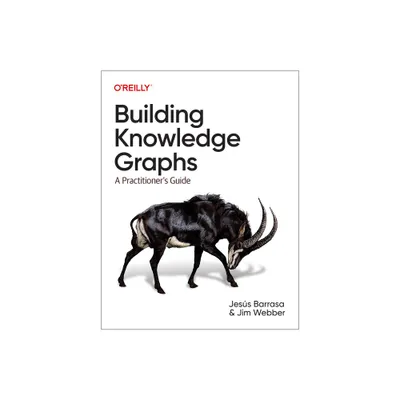Home
Knowledge Graphs: An Information Retrieval Perspective
Loading Inventory...
Barnes and Noble
Knowledge Graphs: An Information Retrieval Perspective
Current price: $99.00


Barnes and Noble
Knowledge Graphs: An Information Retrieval Perspective
Current price: $99.00
Loading Inventory...
Size: OS
*Product Information may vary - to confirm product availability, pricing, and additional information please contact Barnes and Noble
The aim of this survey is to bridge two important components of modern information access: information retrieval (IR) and knowledge graphs (KGs). Modern IR systems can benefit from information available in KGs in multiple ways, independent of whether the KGs are publicly available or proprietary ones. The authors provide an overview of the literature on KGs in the context of IR and the components required when building IR systems that leverage KGs. As an understanding of the intersection of IR and KGs is beneficial to many researchers and practitioners, they consider prior work from two complementary angles: leveraging KGs for information retrieval and enriching KGs using IR techniques. They summarize research work, group related approaches, and discuss challenges shared across tasks at the interface of IR and KGs.
In Knowledge Graphs: An Information Retrieval Perspective, the authors present an extensive overview of tasks related to KGs from an IR perspective, provide a thorough review for each task, and present discussions on common issues that are shared among the tasks. They discuss common issues that appear across the tasks that consider and identify future directions for addressing them. They also provide pointers to datasets and other resources that should be useful for both newcomers and experienced researchers in the area.
In Knowledge Graphs: An Information Retrieval Perspective, the authors present an extensive overview of tasks related to KGs from an IR perspective, provide a thorough review for each task, and present discussions on common issues that are shared among the tasks. They discuss common issues that appear across the tasks that consider and identify future directions for addressing them. They also provide pointers to datasets and other resources that should be useful for both newcomers and experienced researchers in the area.


















